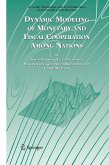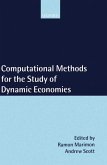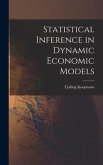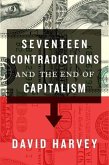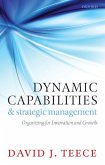Dynamic Approaches to Macroeconomics provides the advanced student with key methodological tools for the dynamic analysis of a core selection of macroeconomic phenomena, including consumption and investment choices, employment and unemployment outcomes, and economic growth.
The technical treatment of these tools will enable the student to handle current journal literature, while not assuming any particular familiarity with advanced analytical tools or mathematical notions. As these tools are introduced, they are related to particular applications to illustrate their use.
Chapters are linked by various formal and substantive threads. Discrete-time optimization under uncertainty, introduced in Chapter 1, is motivated and discussed by applications to consumption theory, with particular attention to empirical implementation. Chapter 2 focuses on continuous-time optimization techniques, and discusses the relevant insights in the context of partial-equilibrium investment models. Chapter 3 revisits many of the previous chapters' formal derivations with applications to
dynamic labour demand, in comparison to optimal investment models, and characterizes labor market equilibrium when not only individual firms' labor demand, but also individual labor supply by workers, is subject to adjustment costs. Chapter 4 proposes broader applications of methods introduced in
the previous chapters and studies continuous-time equilibrium dynamics of representative agent economies, featuring both consumption and investment choices, with applications to long-run growth frameworks of analysis. Chapter 5 illustrates the role of decentralized trading in determining aggregate equilibria, and characterizes aggregate labor market dynamics in the presence of frictional unemployment. Chapters 4 and 5 pay particular attention to strategic interactions and externalities: even
when each agent correctly solves his or her individual dynamic problem, modern microfounded macroeconomic models recognize that macroeconomic equilibrium need not have unambiguously desirable properties.
By bridging the gap between undergraduate economics and modern microfounded macroeconomic research, this book will be of interest to graduate students in economics, and as a technical reference for economic researchers.
Hinweis: Dieser Artikel kann nur an eine deutsche Lieferadresse ausgeliefert werden.
The technical treatment of these tools will enable the student to handle current journal literature, while not assuming any particular familiarity with advanced analytical tools or mathematical notions. As these tools are introduced, they are related to particular applications to illustrate their use.
Chapters are linked by various formal and substantive threads. Discrete-time optimization under uncertainty, introduced in Chapter 1, is motivated and discussed by applications to consumption theory, with particular attention to empirical implementation. Chapter 2 focuses on continuous-time optimization techniques, and discusses the relevant insights in the context of partial-equilibrium investment models. Chapter 3 revisits many of the previous chapters' formal derivations with applications to
dynamic labour demand, in comparison to optimal investment models, and characterizes labor market equilibrium when not only individual firms' labor demand, but also individual labor supply by workers, is subject to adjustment costs. Chapter 4 proposes broader applications of methods introduced in
the previous chapters and studies continuous-time equilibrium dynamics of representative agent economies, featuring both consumption and investment choices, with applications to long-run growth frameworks of analysis. Chapter 5 illustrates the role of decentralized trading in determining aggregate equilibria, and characterizes aggregate labor market dynamics in the presence of frictional unemployment. Chapters 4 and 5 pay particular attention to strategic interactions and externalities: even
when each agent correctly solves his or her individual dynamic problem, modern microfounded macroeconomic models recognize that macroeconomic equilibrium need not have unambiguously desirable properties.
By bridging the gap between undergraduate economics and modern microfounded macroeconomic research, this book will be of interest to graduate students in economics, and as a technical reference for economic researchers.
Hinweis: Dieser Artikel kann nur an eine deutsche Lieferadresse ausgeliefert werden.



